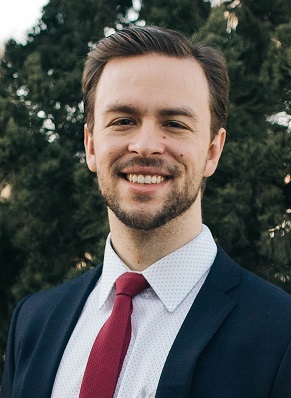 Empirically assessing the plausibility of unconfoundedness in observational studies
Empirically assessing the plausibility of unconfoundedness in observational studies
8 - 27 January 2024
Dr Fernando Hartwig was a Bristol 'Next Generation' Visiting Researcher in 2022 when he worked with Professor George Davey Smith on a project to obtain more robust results using Mendelian randomization.
Biography
Fernando Pires Hartwig received his MSc and Doctorate degrees in Epidemiology at Federal University of Pelotas (Brazil), where he currently is an assistant professor in Epidemiology and a permanent researcher at the Postgraduate Program in Epidemiology. Dr. Hartwig also holds an honorary research fellow position at Bristol Medical School (University of Bristol, UK). His research interests are related to the field of causal inference in epidemiology, with emphasis on empirical and methodological work on instrumental variable analysis. He is also interested in translation of statistical methods between different fields of epidemiology.
Visit Summary
The proposed project is related to causal inference – i.e., identifying causes of diseases. This is one of the main goals of epidemiology, because distinguishing causes from non-causal predictors of disease risk is important for developing effective interventions to improve population health. However, causal inference from epidemiological studies is prone to several limitations. One of the main reasons for this is a form of bias known as confounding, which happens when the target risk factor and the disease outcome share one or more common causes which were not measured or not appropriately handled analytically. An important implication of confounding is that a non-causal factor (e.g., carrying a cigarette lighter) may be correlated with higher disease (e.g., lung cancer) risk even though it is not a cause of the disease because both the factor and disease are affected by a third variable (e.g., smoking). In observational (i.e., non-experimental) studies the researchers have no control over the risk factor allocation in the study population, so there can be no guarantee that confounding was eliminated, thus weakening causal inference. It is well-established that, under complete knowledge of the causal structure connecting the risk factor and the outcome, it is possible to identify factors that need to be accounted for to eliminate confounding (such factors are commonly called covariates). However, due to knowledge and data limitations, this approach is often difficult to implement in practice. More recent developments propose different approaches for covariate selection under partial causal knowledge. However, there is currently no methodological tool for assessing whether a candidate covariate set suffices for confounding adjustment. This project aims at developing an empirical tool for assessing the plausibility of unconfoundedness (given a candidate covariate set) in observational studies. The proposed method is non-parametric, which basically implies that it has wide generality.
Dr Hartwig is hosted by Professor George Davey Smith in the Bristol Medical School.
Planned lectures and seminars
15 January 2024, 12:00 - 13:00, OS6 in Oakfield House
Title: 'A tool for empirically assessing the plausibility of unconfoundedness in observational studies'
More details of Dr Hartwig's lectures and seminars will be posted in due course, in the meantime please contact Dr Hartwig's host for further information.